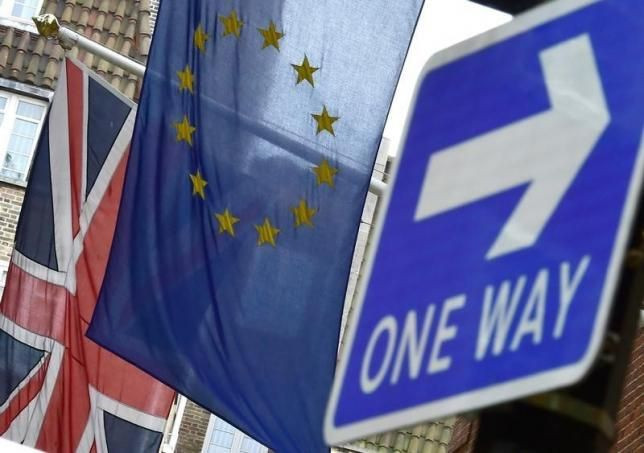'Brexit' Would Be Disaster For UK Financial Sector: Industry Group

A British exit from the European Union would be disastrous for the UK financial industry and could prompt companies to leave the country, the sector's main lobby group said on Tuesday.
TheCityUK also said the British government should hold the referendum on whether to leave the bloc next year, rather than wait until 2017, so companies who are drawing up contingency plans could make investment decisions as early as possible.
The group represents Britain's financial industry, widely known as "the City". Its warning about a possible British exit from the EU is one of the strongest yet from a sector which accounts for 12 percent of the national economy.
"If we left the single market, I think it would be disastrous for the City," TheCityUK Chairman Gerry Grimstone told Reuters.
"If there was a referendum tomorrow on whether we should leave the single market, I think you would get unanimous rejection of that in the City," he said.
Prime Minister David Cameron has pledged to renegotiate Britain's relationship with the bloc before holding an in-out referendum on EU membership by the end of 2017.
"There is a strong mood in the City of 'let's get on with this', with a lot of people waiting to take decisions about investment," said Grimstone, who also chairs Standard Life Investments.
"People are beginning to hedge their bets by keeping alternative locations available. They are working out what to do if Britain does leave and setting up parallel structures that would allow them to leave."
Eurosceptics and some businesses say Britain could flourish outside the EU but Grimstone said it was "dangerous" when people outside finance claim to speak on behalf of the City.
BRUSSELS 'PYTHON'
TheCityUK is seeking to shape the debate ahead of the referendum by proposing 25 EU reforms that would not need treaty change - something it said was unrealistic before the vote.
Its "modest rather than revolutionary" proposals focus on completing the single market, a work in progress since the bloc's founding Treaty of Rome came into force in 1958 and which could boost the British economy by around 110 billion pounds, it said.
Many of the proposals chime with two major reforms already underway in Brussels: "better regulation" to cut down on rulemaking, and the creation of a capital markets union (CMU) to boost funds for companies.
Grimstone hopes the referendum will add urgency to these EU reforms.
"The problem with the Brussels pipeline is it's like an enormously long python," Grimstone said.
"People would like to see these things actually done and the single market improved. People are fed up with talking about it and want things to come out of the python rather than being swallowed by it."
Calls for radical reforms such as a British veto on EU rulemaking are not realistic and a string of modest changes would have a beneficial, cumulative impact and allow the industry to get on with doing business, Grimstone said.
Chancellor George Osborne wants the relationship between countries inside and outside the euro changed to avoid the single currency countries acting as a group to impose rules on those outside.
But Grimstone said redefining relations within the EU would probably need treaty change, something even Cameron does not expect before the vote.
"Anything which hints at structure requires a treaty change. It's completely pie in the sky to think we are going to get a whole set of referenda across Europe about treaty change in the timescale," he said.
© Copyright IBTimes 2025. All rights reserved.





















